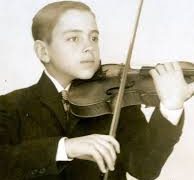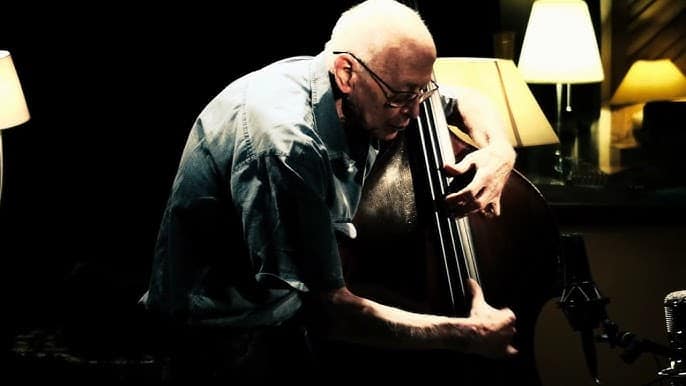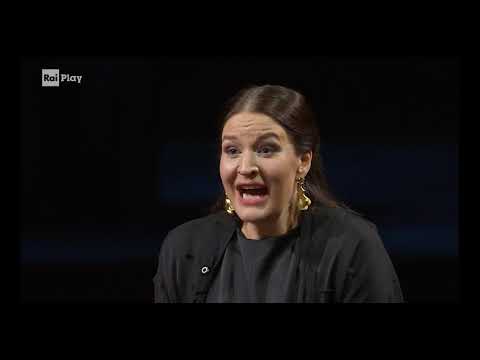I played Carnegie Hall twice before I was 13
mainA NY Times reporter finds a prodigy dropout in a boatyard in the Bronx.
In the 1960s Mr Chandler was one of the most promising classical violin prodigies in New York…
Read his story here.


A NY Times reporter finds a prodigy dropout in a boatyard in the Bronx.
In the 1960s Mr Chandler was one of the most promising classical violin prodigies in New York…
Read his story here.

The US jazz bassist Barre Phillips, resident in…

Colorado will never sound the same without Margaret…

We’re hearing that the Vienna State Opera has…

The death has been made known of the…

Session expired
Please log in again. The login page will open in a new tab. After logging in you can close it and return to this page.
Interesting article. How many promising artists like this end up quitting their instrument? I’m guessing for every one that continues with their art there are at least as many who end up quitting. “They turned me into a trained monkey” – what does this say about pedagogy today (which I imagine is generally more so now than it was in the ‘60s)
What a wonderful article (unless it is an April Fool’s joke)!
Yes, music and its industry can be cruel. All kudos to Mr. Chandler for having found, and lived, a life!
A fascinating read. He clearly had a gift, but if his heart was not in it, perhaps it was better that he quit. Luckily, he had other talents and interests to fall back on. A life well lived!
I believe that part of the problem of the child prodigy phenomenon was that in yesteryear women were expected to find fulfillment in living through their husband and children so they channeled their ambitions into them, and men whose ambitions were thwarted because of the Great Depression also pushed their kids to fulfill the fathers’ professional dreams. In addition, refugee parents and the parents in “middlemen minorities”, like Jews, Chinese and South Asians believed that if their children are accomplished enough in something they were less vulnerable to persecution so they pushed their kids very hard.
Fortunately these social phenomena, especially women having to live through their spouses and kids instead of being able to accomplish things on their own, are much less common and thus we see fewer child prodigies. It’s a healthier trend.
Perhaps a big reason that prodigies give up is the mismatch between talent and ambition.
If one’s ambition is to be better than Itzhak Perlman (as he said he was, at least on one recital), than that’s a pretty high standard to set for oneself, no matter one’s talent.
By all accounts, he had enough talent to have had a good professional life in classical music, and by his own account, he loves classical music, but you know, if one’s ambition for oneself is to be “above” a “mere” tenure position at a major orchestra…
Reminds me of the biography which was turned into a recent film (I forget the name) about the piano player (now in his late eighties who gave up performing because he was unable to get into a prestigious orchestra and he disliked the touring to out of the way areas. The films shows him performing in front of an audience for the first time in 30 years.
It didn’t seem like he had an idea of himself that he was “above” a mere tenured position in a major orchestra, but rather that he’d been pushed so hard for so long that he needed to get out of that life.
To quote the baseball player (from the 2nd link I provided below): “I had a lot of pressure growing up all the time, to be the best, to be the best all the time. My home life was just focused on me being the best baseball player. A person can only take so much of that and they break and that’s what happened to me.”
Somehow I doubt that the parents/ teachers/ coaches in either example would have been amenable to “y’know, I’m as good as I need to be right now to have a pretty decent career. How about we ease off a little, and just let me be an ordinary ‘good’ player?”
Fascinating article. Kudos to the reporter for being willing to take the time to build a friendship with Chandler so that eventually he was willing to open up.
How I saw it was that the reporter hounded him until he gave up and let him have an interview so he would go away.
I don’t know if that’s true; it’s just that (to me) he didn’t seem happy to be giving the interviews. A romantically-minded reader is invited to imagine Chandler having a cathartic experience and returning to his love of the violin in old age now that he’s faced the traumatic memories of his childhood. We always want performers (artists, athletes, actors) to feel the same way as we feel about what they do.
I remember reading an article many years ago about a baseball player who made it to the New York Yankees and then retired, saying he only played baseball to satisfy his father’s ambitions, and now that his father was finally satisfied, he could quit. (I haven’t been able to find the article again, though, so maybe I’m making it up.)
Ha — found it. It was the Mets, not the Yankees:
https://www.nytimes.com/1997/05/30/sports/a-met-prospect-walks-away-from-baseball.html
https://www.si.com/mlb/2017/06/15/ryan-jaroncyk-mets-draft-pick
“Jaroncyk, a graduate of Orange Glen High School… walked away from the Mets with an $850,000 signing bonus already paid to him and a $100,000 college scholarship fund arranged when he agreed to his baseball contract. As of today, the Mets have no plans to ask for a return of the money, a team official said.”
Now, that’s what the NY Phil should start doing, signing on Juilliard high school seniors before they could be nabbed by Boston.